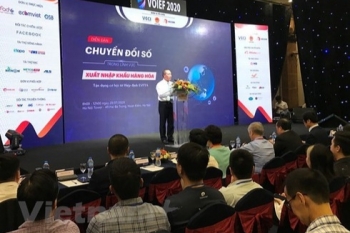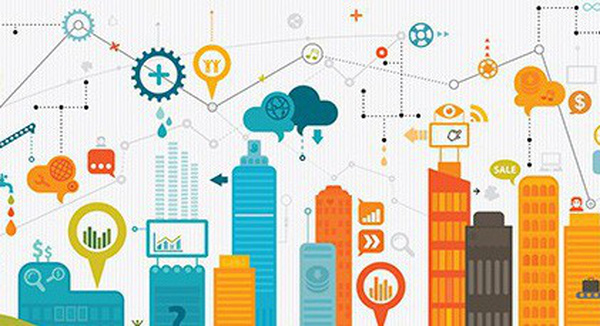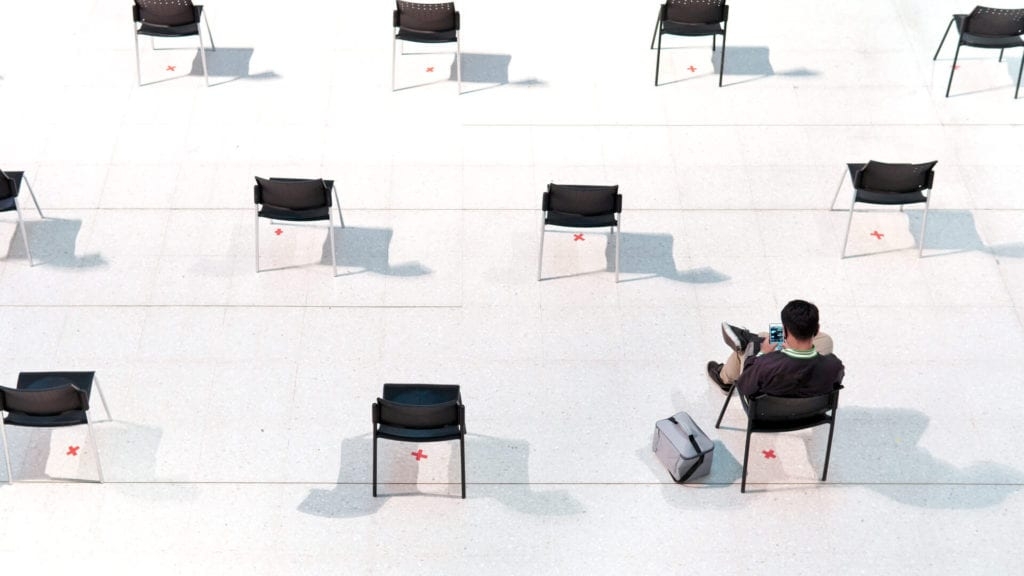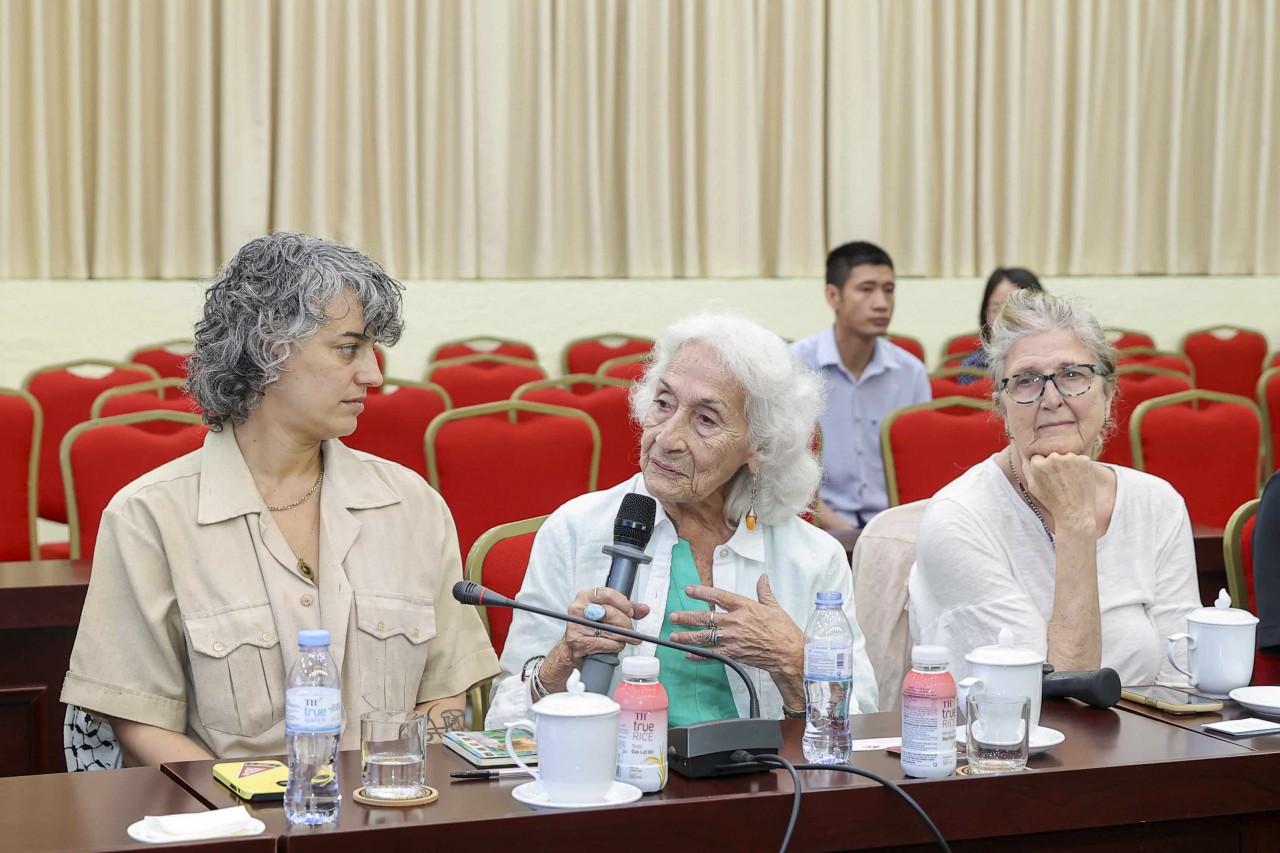Low touch economy - A possible solution for Vietnam in a post-pandemic world
 |
| A "low touch economy" for Vietnam can be considered as a strategic response to COVID-19 |
While the race for a vaccine is accelerating across the world, a recent Imperial College London report forecasted that the current crisis may last up to two years before a vaccine or herd immunity can be achieved, making strict social measures likely to continue into the foreseeable future.
A ‘low touch economy’ would encourage and require limited close-contact interactions and social gatherings during this time, and into the future.
According to Dr. Pham Cong Hiep and Dr. Nguyen Hoang Thuan, senior lecturers from RMIT University Vietnam, while the virus has been relatively well controlled in Vietnam, recent new in-community cases have again raised the need for preventive social distancing measures.
Continued social distancing measures may have a significant impact on Vietnam’s current economic structure, and people’s social and purchasing behaviours in the years to come, commented Dr. Hiep.
“The pandemic is changing how we work, eat, shop, exercise, and spend our free time in ways that we have never expected before,” Dr. Hiep said.
“Individuals and organizations should prepare for a low touch economy now, as new ways of life and new business practices emerge.”
Sharing the same viewpoint, Dr. Thuan added that converting to a low touch economy would ensure Vietnam would be following the global trend, which the country cannot afford to stay out of.
“We need to get ready for any future outbreaks and a low touch economy is a way forward", emphasized Dr. Thuan.
“One of the key preparations is to understand the types of economic activities that would be most affected and what business processes have the potential to become more low touch.”
Low touch economy framework
Regarding this approach, economic experts at RMIT proposes a low touch classification framework to categorise business activities in terms of how many people need to gather at one time, and what level of close-contact interaction needs to take place.
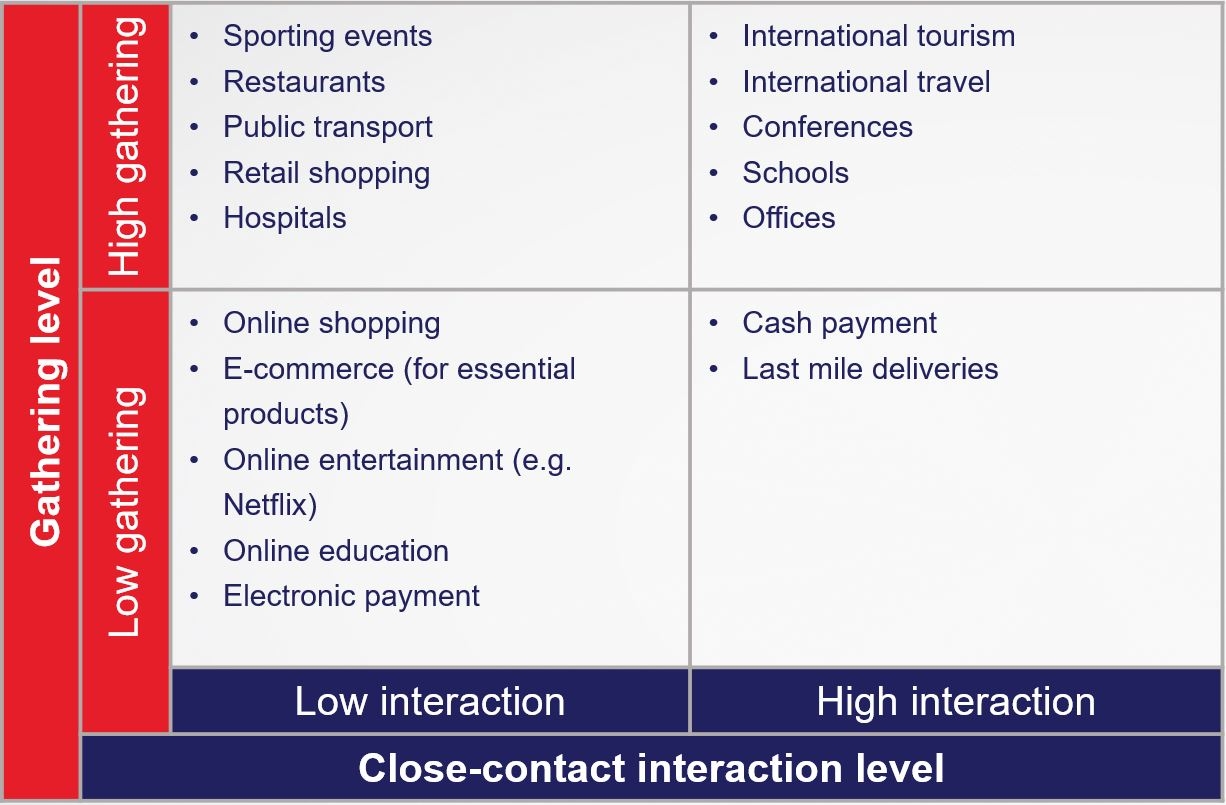 |
| Low touch economy classification framework |
Low touch businesses require no mass gatherings or many close-contact interactions with customers. This type of business has been doing well during the COVID-19 pandemic, with online shopping, education and entertainment, and cashless payments experiencing unprecedented growth both overseas and in Vietnam.
“Low touch businesses can employ new digital technologies to deliver innovative care to customers while keeping everyone as safe as possible,” Dr. Hiep said.
In contrast, high touch businesses can require mass gatherings and high close-contact interactions, like the tourism and hospitality industry, conferences, and traditional office structures.
“Strict social distancing policies and travel restrictions may lead to severe consequences for high touch businesses if they do not introduce more low touch activities,” Dr. Thuan explained.
Dr Hiep added that digital transformation across multiple industries “has never been more pressing to ensure a smooth transition from high touch to low touch, or even touch-less business models”.
“Touchless business models provide highly digital interactions and personalized services without the need to rely on close contact with customers.”
 |
| Touchless business models provide better services for customers. Photo: doanhtri |
Vietnam’s moves towards a low touch economy
In response to COVID-19, Vietnamese businesses and government agencies have initiated many activities that aim to reduce high touchpoints in the economy this year.
Dr Thuan applauded the nation’s "Cashless Day" on 16 June as one such initiative, a joint project delivered by the State Bank of Vietnam, the National Payment Corporation of Vietnam (NAPAS), and the Vietnam E-commerce Association.
The pandemic also accelerated the government’s plans to provide selected online public services on multiple platforms and online processing for most government documents by the year of 2030.
A recent Mobile Marketing Association survey found that digital services have also experienced growth as many customers utilized online services for the first time during the pandemic.
“Consumer changes towards online interactions would spur businesses to invest more in digitizing their core processes,” Dr. Thuan said. “Many local organizations now view digitisation as a key to sustained growth.”
 |
| A recent survey by the Mobile Marketing Association found that digital services have experienced new growth during the pandemic |
Meanwhile, Dr. Hiep emphasized the need for local sourcing and diversification of supply chain sources to ensure fewer disruptions in critical supply chains and less reliance on overseas suppliers.
“In terms of office workers, local organizations should adopt flexible working arrangements including working from home structures that provide guidelines, suitable equipment and training to ensure effective blending between office-based and home-based alternatives,” he advised.
| The term Low Touch Economy refers to the way businesses across the globe have been forced to operate in order to succeed as a result of Covid-19. The best way to define its meaning is to list its main characteristics so far: * To mitigate health risks, businesses have been forced to adapt to strict policies, including low-touch interactions, limited gatherings, travel restrictions, and so on. * Multiple aftershocks in global markets can already be seen. These include shifts in consumer behavior, new regulations, and supply chain disruptions. * Medical experts and business leaders assume Covid-19 will directly influence the economy until late 2021. * Businesses that survive the Covid-19 pandemic will be those that rely on business models tailored to this new normal while keeping everyone as safe as possible. (Source: Board Of Innovation)
|
 | Telemedicine – Vietnam’s digital transformation in healthcare service Telemedicine, a technology-based model to support medical treatment and healthcare, is in wide use in many countries. Now a number of clinics and other medical ... |
 | Vietnamese universities in the process of digital transformation Vietnamese schools agree that now is the right time to digitize university education despite challenges of organizing online training. |
 | Minister asked for more creative use of digital transformation in Vietnam Minister of Information and Communications Nguyen Manh Hung asked digital technology firms to be more creative to provide more online services. |

